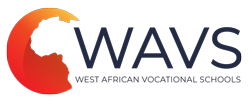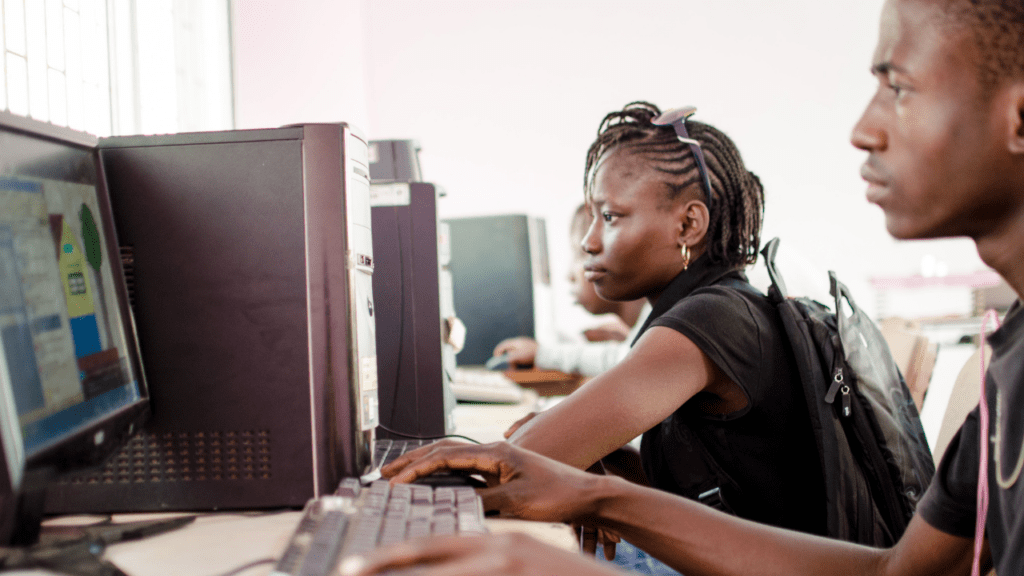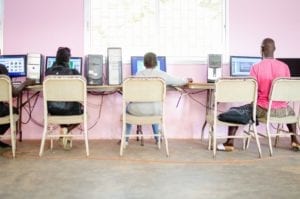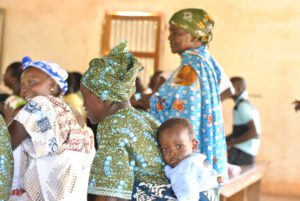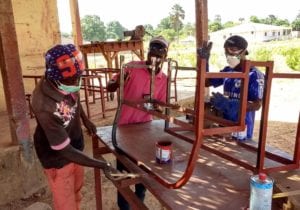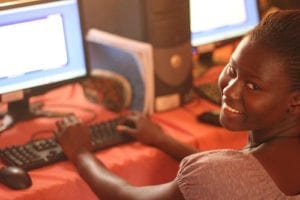Iano and Alassana spend their morning in computer literacy classes at a WAVS vocational school in West Africa. After their class, they both walk down the street to a local high school. They travel there for different purposes: one to attend and the other to teach. But they both need to learn how to use a computer if they want to succeed in life.


In a region where many people lack basic computer skills, there is strong demand for the opportunity to learn digital skills that can change their life.
Here’s how these computer skills can help people in West Africa. Specifically, let’s take a look at how these skills impact people in Guinea-Bissau, a tiny country in the region where most people live on less than $2 per day.
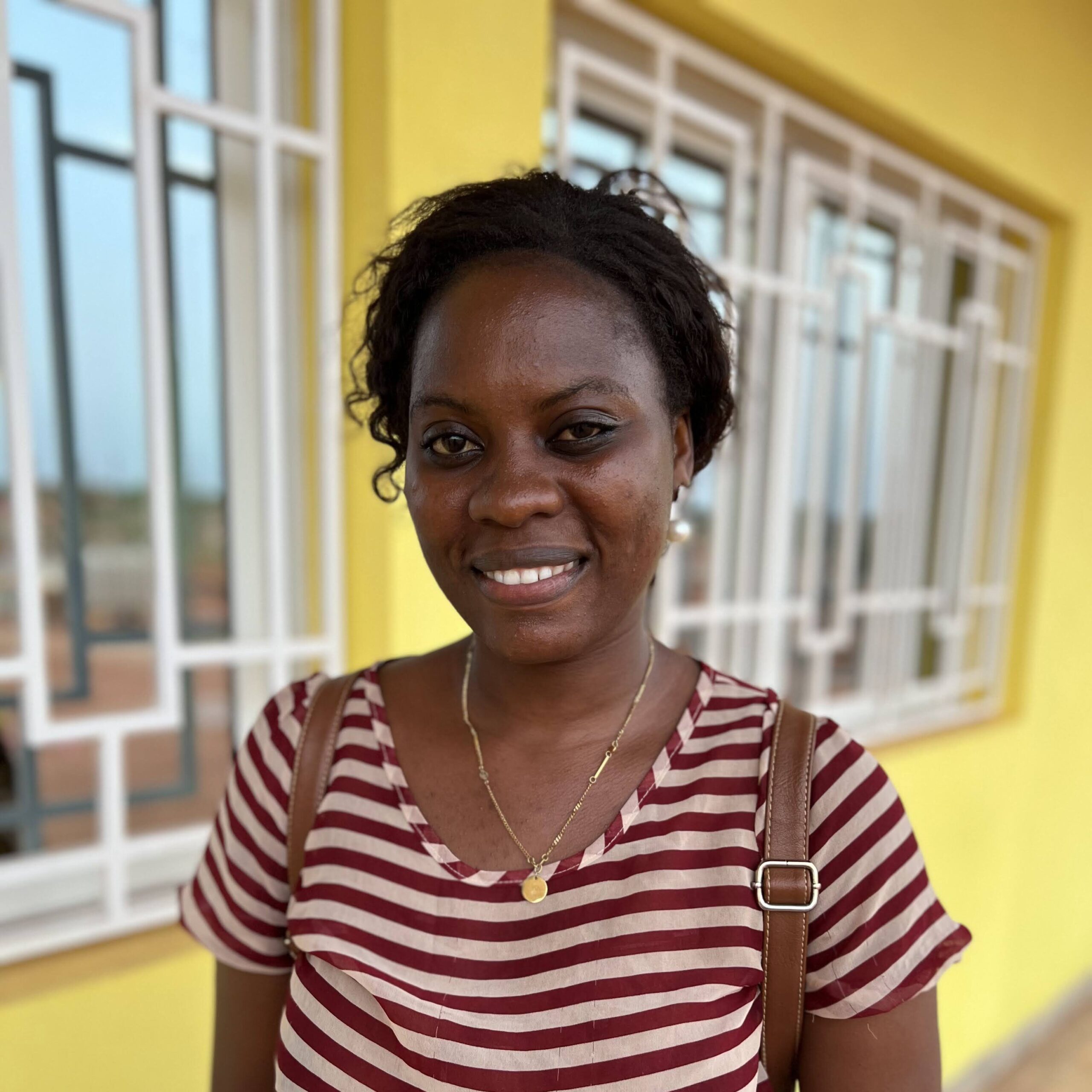
“If I have computer skills, I can work in a bank, for a business, or anywhere that they use a computer to do work.”
Fatumata Balde – WAVS student
Guinea-Bissau: A country with potential
In Guinea-Bissau, a country of 2 million people, the average person survives on $1.40 a day. About 70% of the population lives below the poverty line. In many places, sewage seeps into the same ground where well-water is drawn from. It’s not surprising that the average life-expectancy is 58 years old.
Guinea-Bissau is home to fertile land and beautiful islands with lots of tourism potential. However, ongoing drug trafficking and chronic political corruption have caused businesses to avoid the small West African country. As a result, Guinea-Bissau remains critically underdeveloped, even as neighboring countries slowly gain traction in the global economy.
AT A GLANCE: GUINEA-BISSAU

Education in Guinea-Bissau
Bissau-Guineans hoping to overcome poverty through education face frequent teacher strikes, crumbling infrastructure, and months-long school closures. Schools in rural villages are typically no more than a dirt patch with wooden benches and thatch walls. Most schools don’t even provide chairs for students to sit in, let alone a quality education.
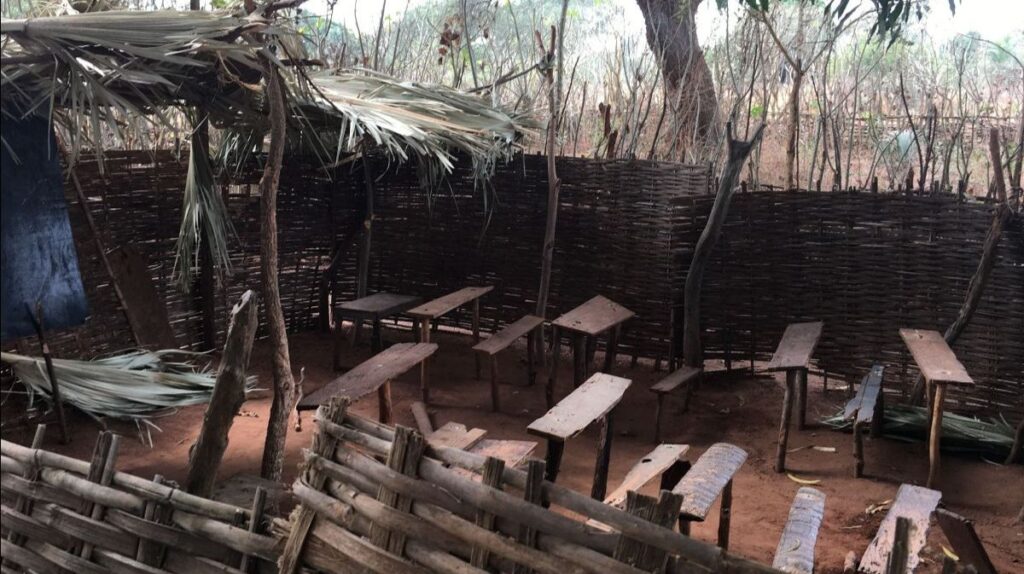
“Schools” in villages in Guinea-Bissau are little more than several wooden benches surrounded by a thatch wall.
As a result of this broken education system, Guinea-Bissau is left with a population that lacks the skills necessary to earn a reliable income and provide for their families. In fact, more than half of the population is illiterate.
Impact of digital job skills
At first glance, life in Guinea-Bissau can seem hopeless for many people. But learning even the basics of how to use a computer can help change that. In a country where only 28% of people are able to access the internet, skills such building Excel spreadsheets can help young people find a reliable job.
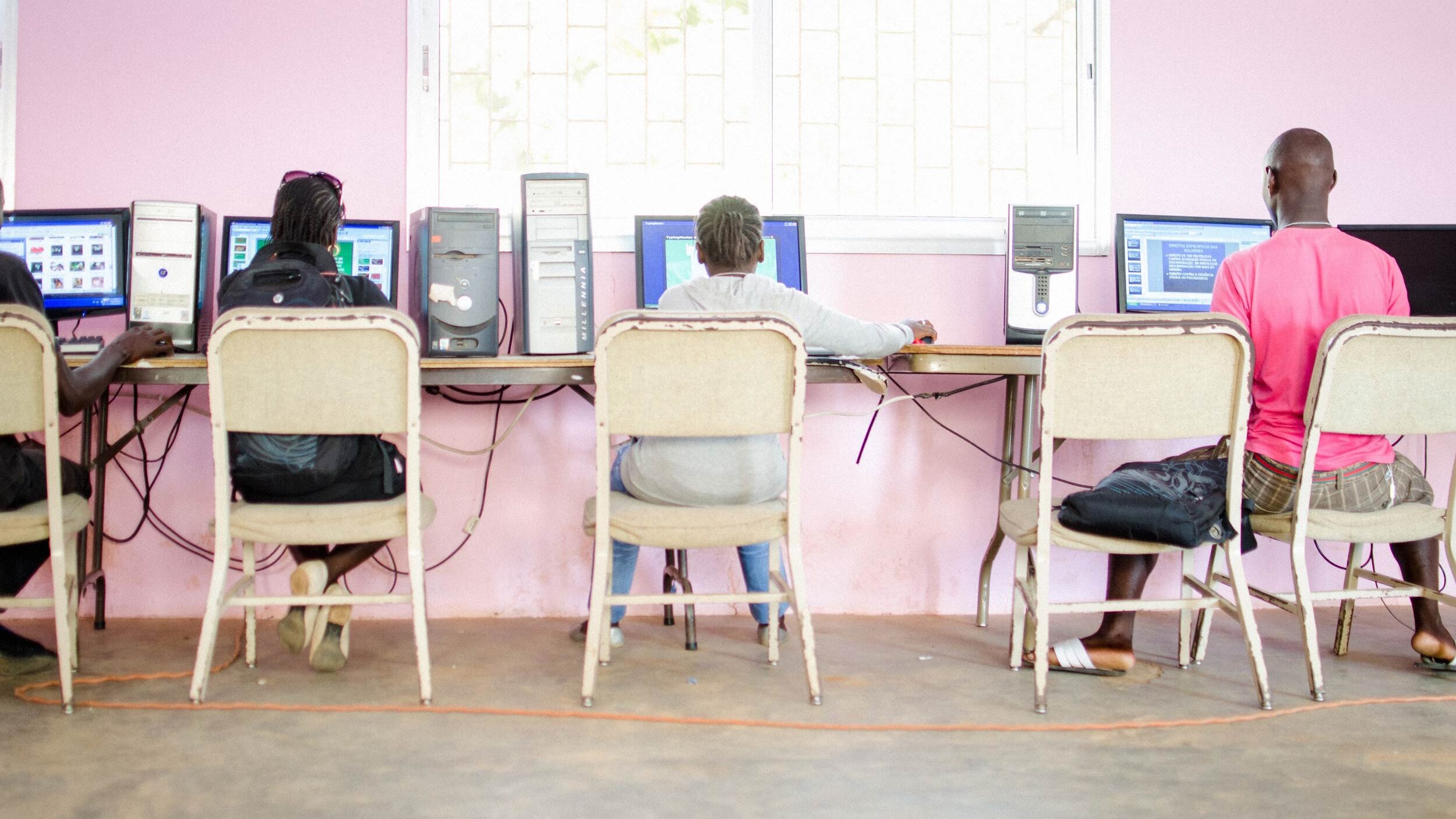
STAY CONNECTED
See what WAVS is doing to provide computer literacy skills in Guinea-Bissau with stories delivered straight to your inbox!

Computer literacy leads to economic development
Students aren’t the only ones to benefit from learning computer skills. International companies looking to invest in Guinea-Bissau may be more inclined to do so if they know there are qualified individuals available for hire. Knowledgeable employees can help businesses and organizations operate successfully and contribute to the country’s economy.
Why so many people lack basic computer skills
Unfortunately, finding a place to learn these computer skills can be a difficult process. Even the flagship public high school in the capital struggles to find funding to fix a collapsed roof, let alone train students in computer literacy. And the dirt-floor schools found in the villages aren’t exactly the ideal setting for a computer lab or course.
Reliable electricity can be hard to come by. In 2021, only 31% of the population had access to electricity. Those who do have access to electricity face an inconsistent power supply with unpredictable blackouts lasting anywhere from hours to days. Even in the capital city, the most developed part of the country, energy supply is sourced from a Turkish generator boat anchored outside the city’s port.
How WAVS helps students learn new skills
Courses at WAVS vocational schools are different from those offered throughout the rest of the country. Operating costs of the school are subsidized by members of the One Student community, a group of monthly donors who help cover the cost of tuition for students. The schools rely on solar power to ensure that classes can continue to run amidst city-wide power outages.
You can give young people in West Africa the job skills they need to succeed.
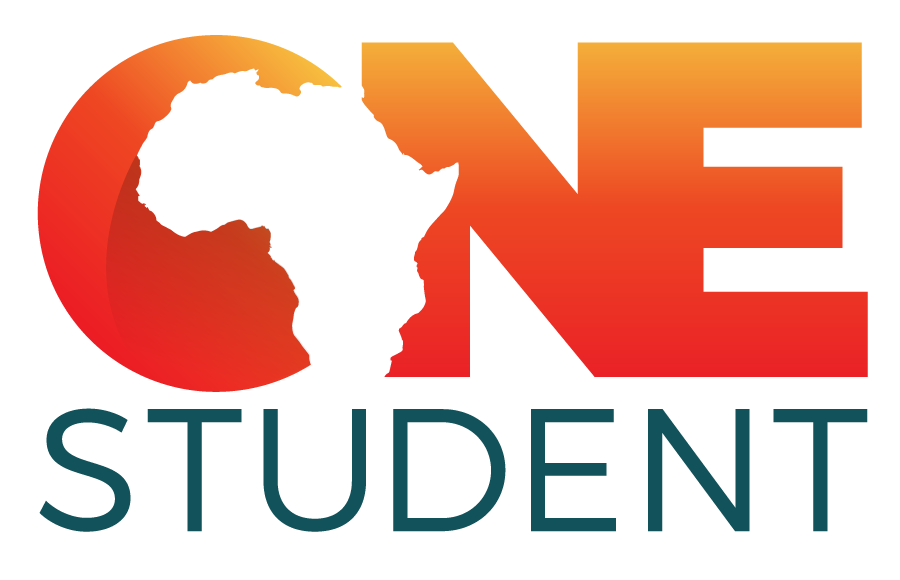
Each WAVS student pays a small part of their tuition costs. Generous sponsors like you help cover the rest.
Three out of four graduates go on to find employment, start their own business, or continue their studies. Today, you can join the One Student community and help equip young people in West Africa with life-changing job skills, one student at a time.
How computer skills have helped change lives
Graduates of the WAVS computer literacy program have experienced first-hand how computer skills can change their life. The United Nations hired Deusa, a WAVS graduate, to track data in Excel for a school-feeding program. Atanacio Gomes, another graduate, was hired at a local orphanage where he uses his computer skills every day. Ussumane Fati, a third graduate, became an administrator at a local primary school while he continues his studies at a university.
The families of these graduates benefit as well. A consistent job means a consistent income and consistent food on the table for the whole family.
New students dream of brighter futures
I recently spoke with students studying computer literacy at WAVS vocational schools. Their hope was contagious.
Teresa wants to use computer skills to help her operate her own grocery store in the future. Quecuto wants to digitally recreate his artwork and print them on t-shirts, which he plans to sell. Several students, like Filomena and Adja, intend to further their studies after graduating from WAVS to become computer engineers.
With the skills they will receive at WAVS vocational schools, these dreams will be able to become realities.

In West Africa, young people often don’t have a chance to learn basic computer skills, which puts them at a disadvantage in life. WAVS vocational schools help them catch up and work for a brighter future.
Want to learn more about life in Guinea-Bissau and West Africa?
